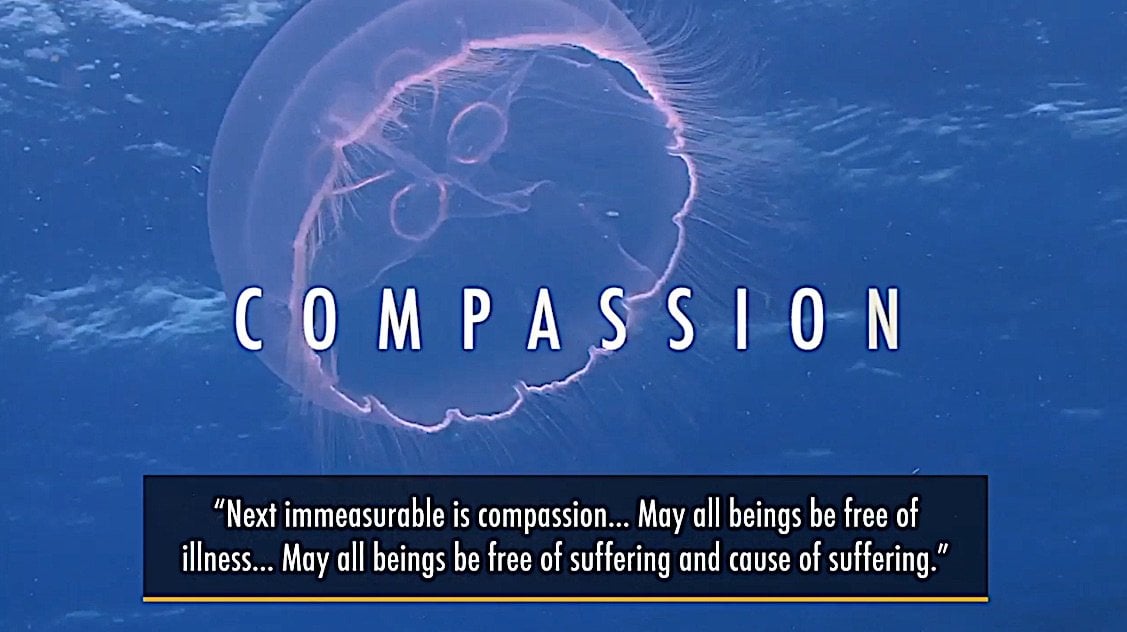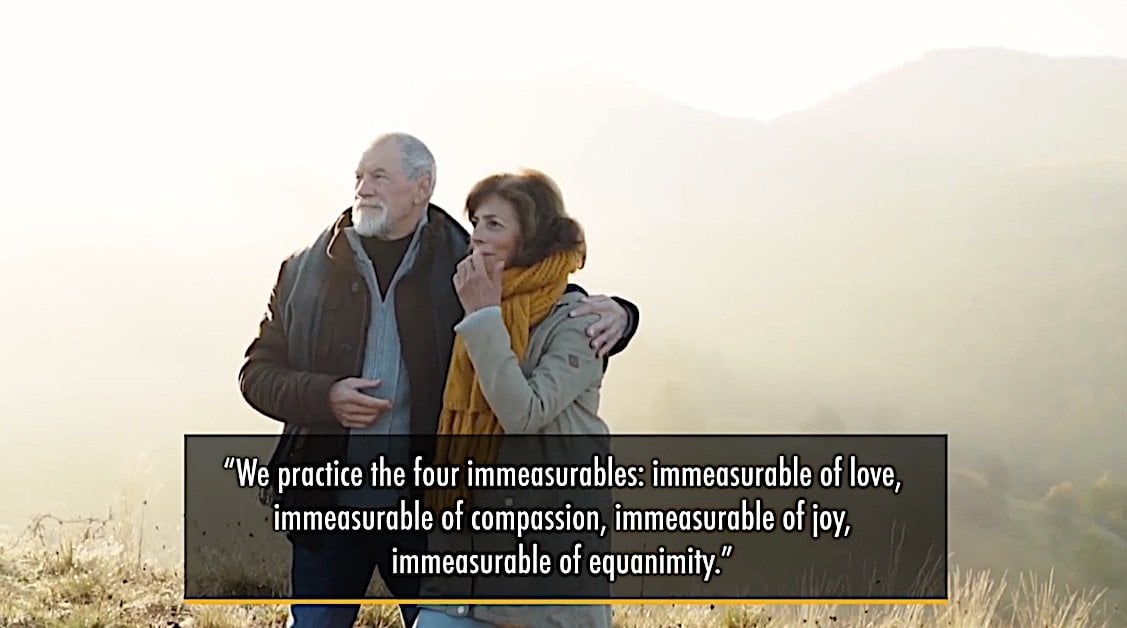Metta meditation in times of crisis: “we all have a responsibility to exercise compassion” (Dalai Lama)
The Buddhist tradition of Metta meditation (or loving-kindness meditation) is one of the fundamental compassion-based practices that we can turn to in this time of crisis. This practice can help us to feel greater compassion for ourselves. It can reduce our stress response and in turn, improve other markers of health such as immunity (see this feature on the science-verified ten health benefits of of Metta meditation>>) and to soften the walls we’ve built against others.
The COVID-19 crisis brought us a sense of just how interconnected we really are. In a matter of weeks, it became clear that a challenge experienced in one locale of the world was quickly moving across waters. This emphasized that we are closer to one another than we might think. In an article published by Time Magazine after it became clear that the virus was a global concern, the Dalai Lama wrote:
“This crisis shows us that we are not separate from one another – even when we are living apart. Therefore, we all have a responsibility to exercise compassion and help.”
Feature by Gillian Sanger
[Bio below.]

When fear takes root
This call for compassion is essential in a time when fear and panic are causing many to forget or lose sight of our shared humanity.
When fear takes root, the fight-or-flight mechanism takes over and we begin defending ourselves – not only from the virus but from all other perceived threats.
The energy of the heart closes as we figure out what steps we want to take in the name of survival. Though the pursuit of survival is understandable, this fear response has led to many secondary challenges of this virus, such as hoarding of goods, aggression, and judgment of others.

The Benefits of Compassion

Yet if we are to effectively navigate this time of crisis, we will need to harness the loving energy that rests beneath our shared humanity – that is, the energy of compassion. Those of Buddhist and other spiritual traditions have long understood the power of compassion, but modern science is now also able to revel in its benefits.
Research has found that compassion meditations can help to reduce stress-induced subjective distress, and that both compassion meditation and loving-kindness meditation may be useful strategies in helping people to manage psychological challenges such as anger, social anxiety, and marital conflict (all of which may be on the forefront for many due to these recent events).
Metta increases social connectedness
Another study found that both mindfulness meditation and loving-kindness meditation can help to increase one’s sense of both social connectedness and nature connectedness. And when it comes to self-compassion, research shows that kindness and compassion towards ourselves can help to reduce both perceived stress and the physiological response to stress while also promoting better physical health.
Practicing compassion is, therefore, a direct and practical response to the understandable rise in fear so many are currently experiencing. Entailing more than just ‘kind thoughts’, it is a practice we can commit to in an effort to bring greater wholeness and healing to this world.

How to: Metta meditation
We can practice this simple technique by taking ten minutes each day to cultivate our connection to the heart space. Once grounded in this core of our being, we can begin silently offering kind and loving wishes to ourselves and to others.
Going through a standard sequence of individuals and ending with an image of the entire world can help us to soften the divides we perceive between us and others – even between us and those we have great difficulty with.
This practice invites us to repeat the following words to, in sequence: ourselves, a loved one, an acquaintance, someone we have difficulties with, and then the whole world as one living being. The words we might choose to use during this practice are:
May you be safe.
May you be healthy.
May you be loved.
May you be at peace.

As we begin to offer these wishes to ourselves and to others in the silence of meditation, we begin to soften our attachment to the surface-layer differences we experience. At the root of who we are is more commonality than our beliefs, opinions, and personalities give credit to.
As we realize our shared humanity, it becomes more natural – more effortless – to offer ourselves in compassionate, supportive ways. By grounding our thoughts in compassion, our actions follow suit.

Coming Back to the Heart
By grounding ourselves in the heart – in its energies of love, compassion, kindness, and patience – we start to soften the mind that so easily becomes entangled in fear. Compassion practices like metta meditation do not impede with the need to make decisions about what actions we will take in the outside world. Taking certain action is indeed a part of our response to this crisis. Rather, compassion uplifts our actions, helping us to move in ways that benefit us, others, and the planet as a whole. One heartfelt moment at a time, we contribute to the collective movement beyond this time of difficulty.
More articles by this author
Search
Latest Features
Please support the "Spread the Dharma" mission as one of our heroic Dharma Supporting Members, or with a one-time donation.
Please Help Support the “Spread the Dharma” Mission!

Be a part of the noble mission as a supporting member or a patron, or a volunteer contributor of content.
The power of Dharma to help sentient beings, in part, lies in ensuring access to Buddha’s precious Dharma — the mission of Buddha Weekly. We can’t do it without you!
A non-profit association since 2007, Buddha Weekly published many feature articles, videos, and, podcasts. Please consider supporting the mission to preserve and “Spread the Dharma." Your support as either a patron or a supporting member helps defray the high costs of producing quality Dharma content. Thank you! Learn more here, or become one of our super karma heroes on Patreon.
Gillian Sanger
Author | Buddha Weekly
Gillian Florence Sanger is a writer for Mindfulness Exercises. She writes both poetry and non-fiction and teaches yoga and mindfulness. Through her work, she aims to uncover ever-deepening realms of soul and psyche for greater peace, self-awareness, and contentment.













